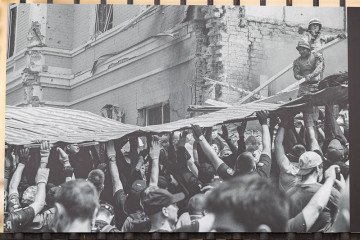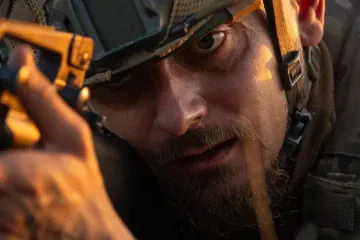- Category
- Culture
Say “Palianytsia”: How Ukraine Turned a Loaf of Bread into a Test to Spot Russian Saboteurs

How exactly did a loaf of bread take down a network of infiltrators in Ukraine and become a symbol of Ukrainian national identity? The short answer is that it’s all about how you pronounce your “I”s.
Aside from widespread attacks across Ukraine, Russia’s invasion included an element of disinformation campaigns and agents embedded within the country. This successfully incited panic and distrust among the Ukrainian population. Though not for long, in response, Ukrainians devised a clever method to identify saboteurs: a password involving a simple Ukrainian word that Russians astonishingly could not pronounce—it was: “Palianytsia.”
The difficulty in correctly pronouncing the word “Palianytsia” is due to differences in phonetics between the two languages. This Palianytsia test became an effective strategy for distinguishing native Ukrainian speakers and potential infiltrators who might struggle with pronunciation. Its memefication and subsequent widespread use also became an early symbol of national identity and resistance forged by the war.
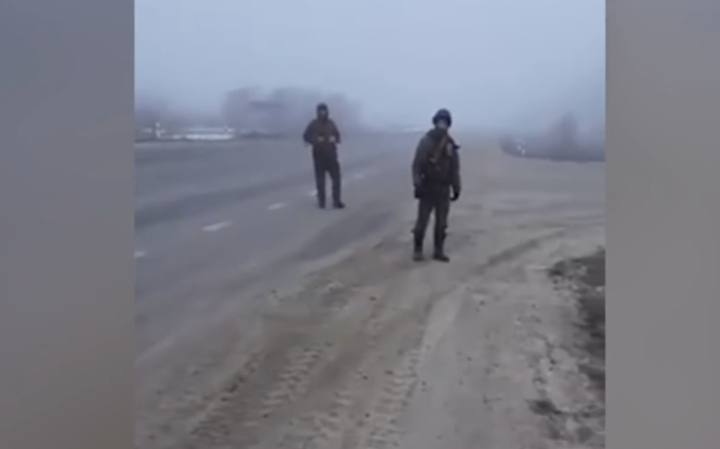
Codeword origin
It’s important to understand the distrust that gripped the country at the start of the invasion. Many unfamiliar faces appeared in villages and cities across Ukraine, often involving internally displaced persons fleeing intense fighting. In some cases, unidentifiable soldiers were seen stationed across the country.
In one case, a Ukrainian man recorded his brazen confrontation with multiple armed men in military fatigues. At the start of the war, it wasn’t clear yet who was on what side. The video begins with his approach: “Here 12 kilometers from Shtepyvka, are 2 BMPs, and what they’re up to… nobody knows,” the man narrates.
“Glory to Ukraine!” the Ukrainian man yells at men in military uniform, One would hear “Glory to the heroes” in return—there was silence. “Okay, I get it, you guys don’t want to answer… How about you say the word Palianytsia,” he says. It became evident then that the men he was approaching were Russian soldiers.
The video remarkably ends peacefully, with an argument about filming rights, and the Ukrainian constitution which one can assume the Russian soldiers weren’t there to defend. Moments like these were plentiful during the start of the war and served as a mobilizing force that any Ukrainian could rally around, it is just one word after all.
As soon as the war began, efforts were made to dispel the Russian invaders. Checkpoints were set up across the country, as documents were checked and soldiers would ask subjects to say “Palianytsia”. Simultaneously, citizens took proactive measures, asking suspicious individuals in their areas to repeat the code word. While many individuals proved friendly, this simple test often helped alert authorities to enemy agents embedded within the country.
For citizens, the broadened popularity of the “Palianytsia” code word would serve to soothe the anxieties of Ukrainians and help reestablish trust among neighbors. For the military, it helped them better understand what areas may be under Russian control, and who may be nefariously posing as a member of the Ukrainian armed forces.
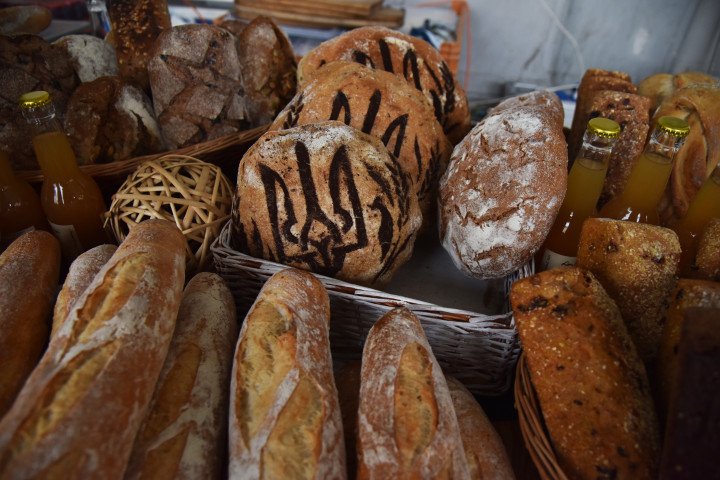
What does the word mean?
Palianytsia is a traditional Ukrainian bread, similar to a round loaf with a crusty exterior and soft interior. The bread is typically made from wheat flour, water, yeast, and salt, and it holds a significant place in Ukrainian culinary traditions.
It is a symbol of hospitality and is often associated with Ukrainian cultural identity. In rural areas, it is sometimes baked in wood-fired ovens, which gives it a distinct aroma and flavor. The bread is served at family gatherings, festivals, and other significant occasions.
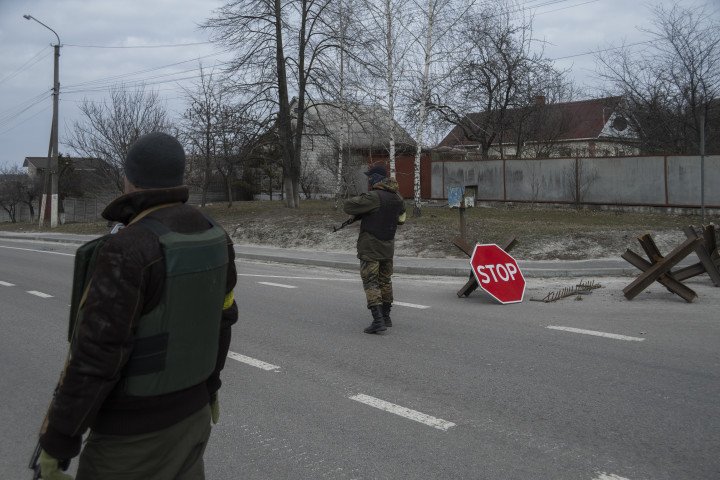
Pronunciation
Oksana Bomba, an Assistant Professor of the Ukrainian Language, Culture, and Regional Studies at the University of Montana, wrote her thoughts on the linguistic phenomenon that is "Palianytsia".
Oksana explains that “Many people think that Ukrainian and Russian languages are similar, when in fact there are vital differences. Because of the differing phonological constraints between these two languages, trying to pronounce the word “Palianytsia” is challenging for invaders. Asking a person to pronounce this word is a quick check-up needed for security reasons at war, which gives away the enemy or a diversant. This word became rather a symbol of how language matters”.
The difficulty Russians have with pronouncing “Palianytsia” is often attributed to phonological differences between the Russian and Ukrainian languages.
The Ukrainian language has certain sounds that do not exist in Russian, which makes it difficult for native Russian speakers to pronounce certain Ukrainian words correctly. In the word “Palianytsia” (паляниця), the combination of sounds and stress patterns can be challenging—it in effect, is uniquely Ukrainian.
The vowel sound "и" (similar to the English "i" in "bit") does not exist in Russian; their version of the "и" sounds much closer to the English "ee" in "see." This results in Russian speakers pronouncing "Palianytsia" more like "Palianitsa".
The Ukrainian "ц" or “ts” is a palatalized consonant, meaning it is pronounced with the tongue closer to the roof of the mouth, which can be challenging for Russian speakers who do not have this feature in their language. Russian speakers might instead pronounce it as "ts" or "t"
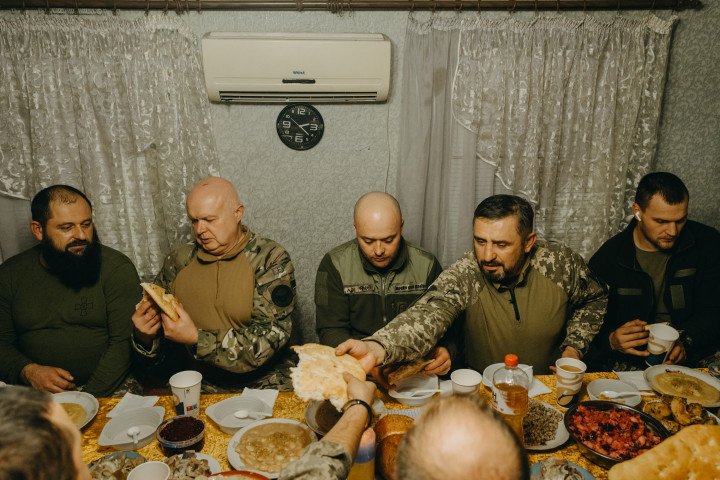
Memefication and effects on national identity
The Russian Federation, through its official media outlets, has made a concerted effort to discredit anything associated with Ukrainian independence. Various claims have been propagated in Russia, ranging from the false assertion that the Ukrainian language is fabricated to the outright denial of Ukraine's existence.
Memes became a powerful tool to counter decades, if not centuries, of Russian narratives about Ukraine. With global attention focused on them, Ukrainians shared their stories.
"Say Palianytsia" became a game for children who asked drivers at makeshift checkpoints for this word. But it became even more widespread in the form of memes. Importantly, within Ukraine, it became one of the first wartime memes to emerge from the 2022 full-scale invasion. Some may remember videos of Ukrainian tractors towing Russin tanks or “Russian Warship go fuck yourself!” as members of the pantheon of Ukrainian wartime memes.
“Palianytsia" appeared during a moment of acute tension; it captured the nation's attention and served as a way to calm an anxious Ukrainian population. It was a simple and effective platform for a war-rattled Ukraine to find a common topic to rally around, reminiscent of the spirit of the Ukrainian Cossacks, and it became just what the country needed to broadcast palyanytsia and Ukrainian identity to a global audience.

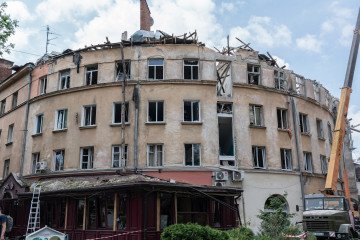

-85339c7a2471296aa16e967758e245c6.png)
